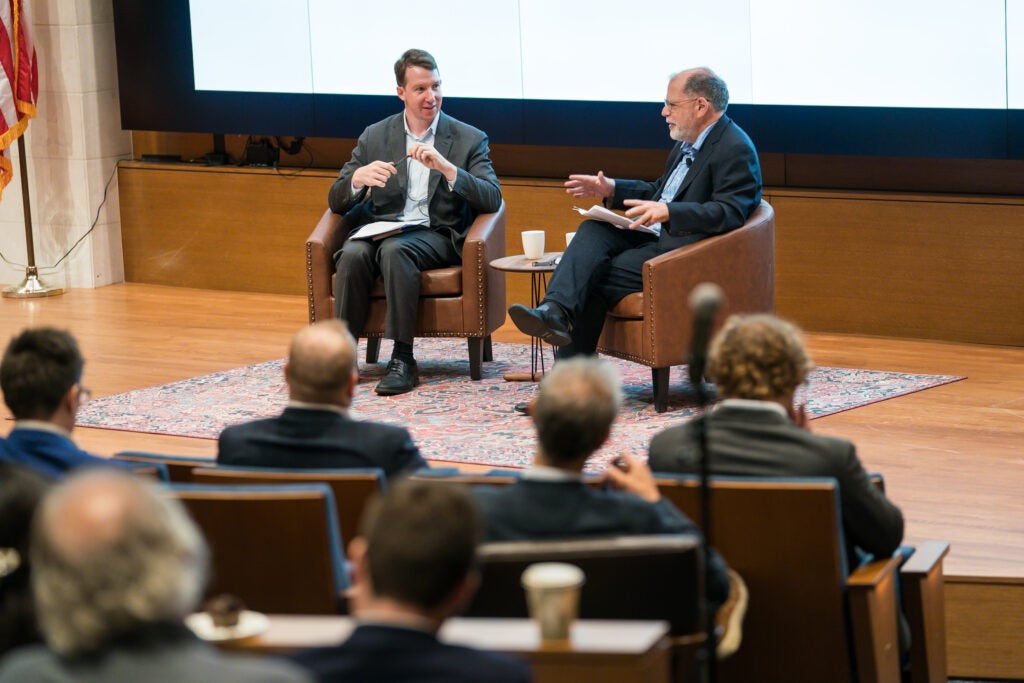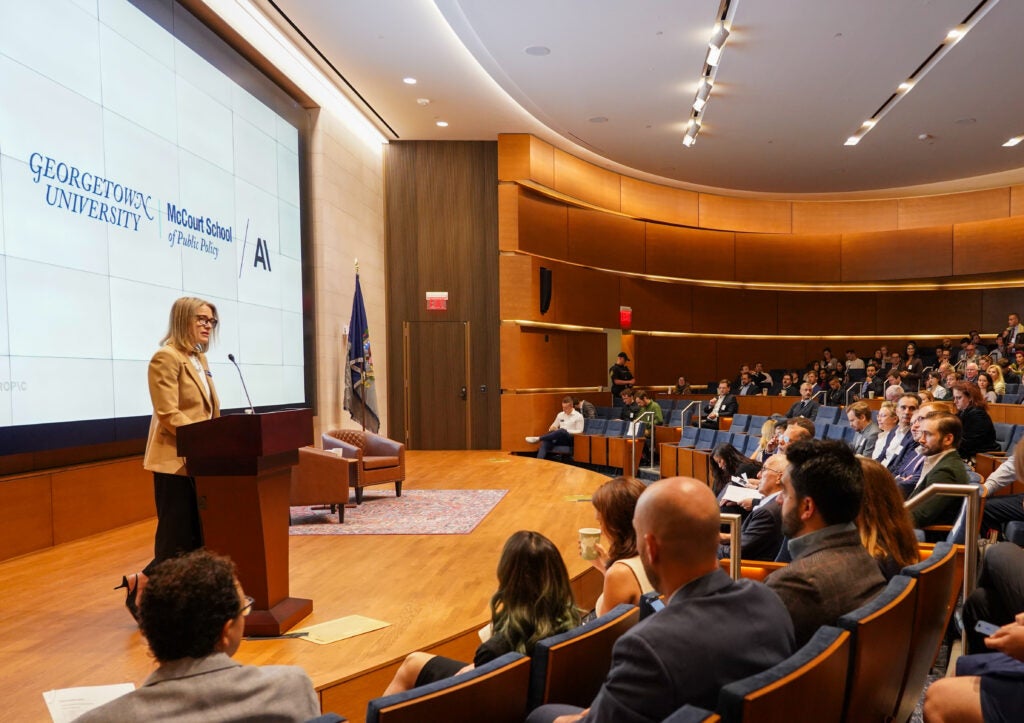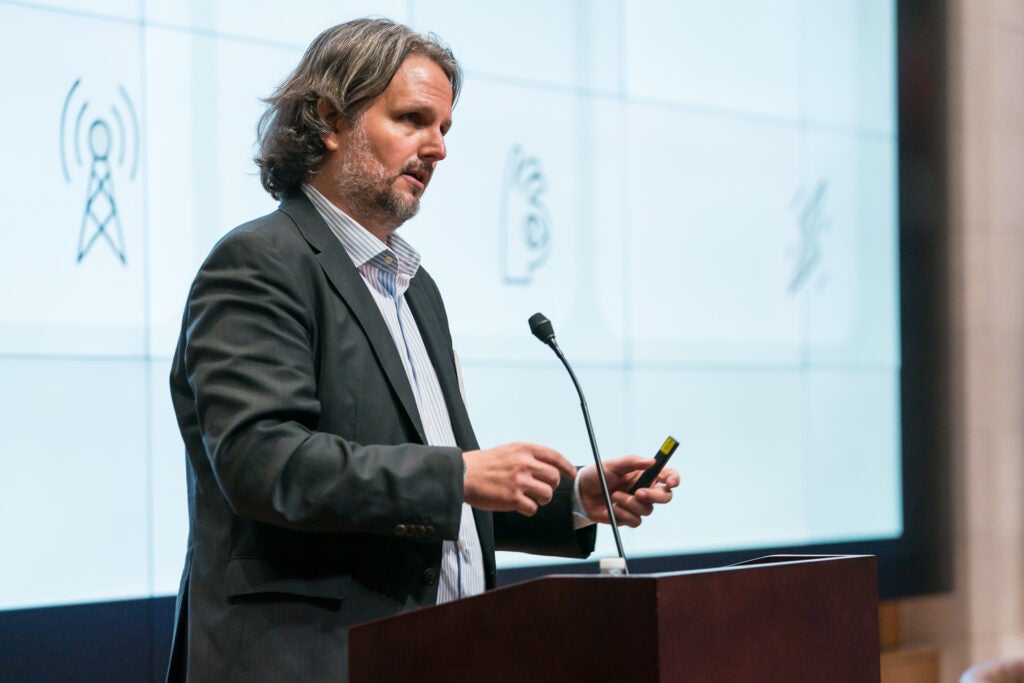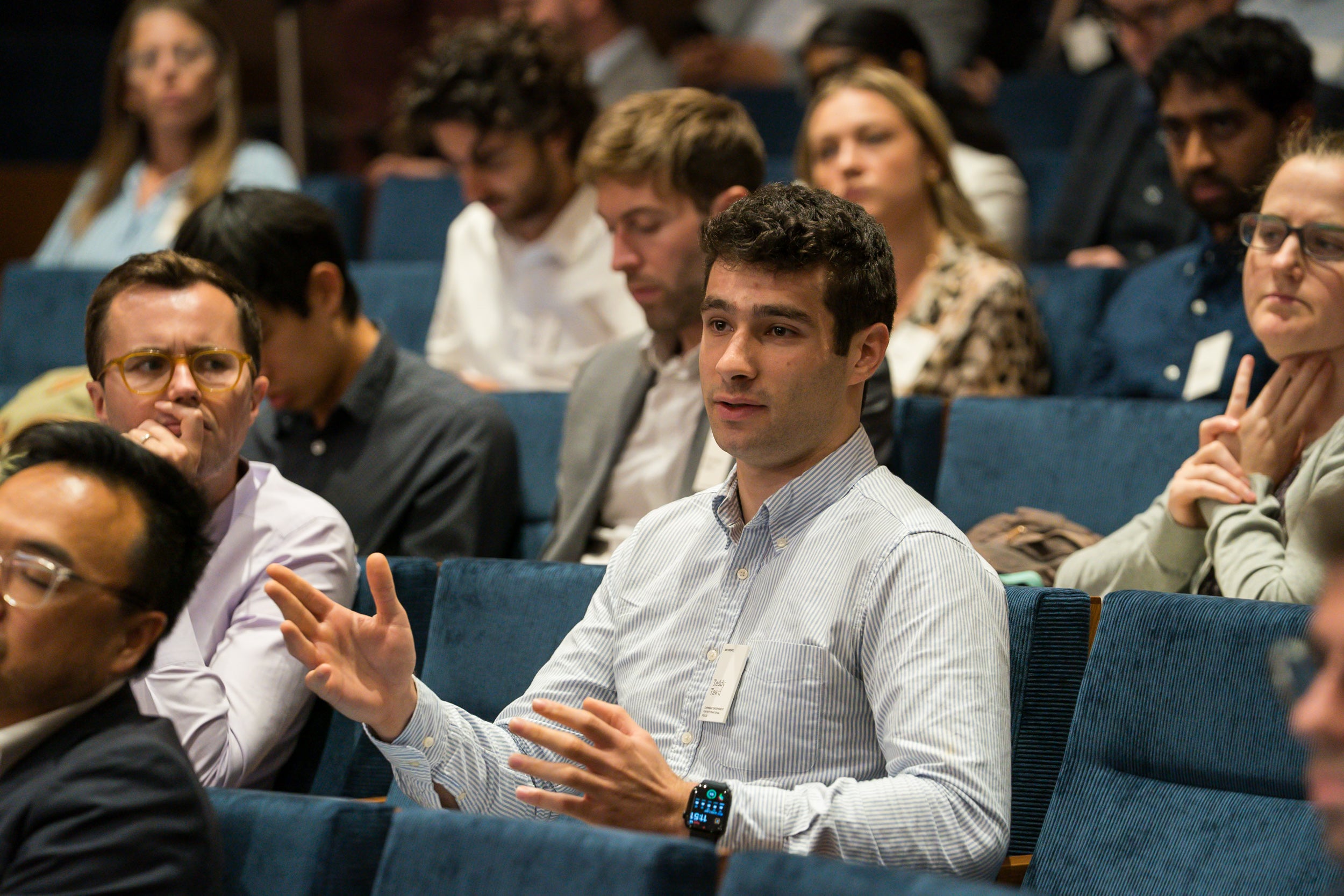McCourt and Anthropic explore the promise and uncertainty posed by AI’s impacts on the economy
The McCourt School of Public Policy hosted Anthropic, a leading AI company, for a half-day symposium exploring how rapid advances in artificial intelligence are reshaping the economy — bringing both opportunity and disruption.
Rapid advances in AI are transforming economies worldwide, creating new opportunities while raising urgent questions about ethics, sustainability and impact. To explore these challenges, the McCourt School of Public Policy partnered with Anthropic to host a symposium bringing together AI technology researchers, policy and industry leaders on Georgetown University’s Capitol Campus. Speakers from top global, federal and state institutions explored how the technology could reshape the economy, touching on everything from small businesses to the U.S. immigration system, and offered ideas for policy solutions through a series of high-level presentations.
The symposium was hosted as part of the company’s Economic Futures initiative, an effort to promote research and policy development focused on addressing AI’s economic impacts. The event explored the opportunities and challenges of AI’s growing influence on economies and examined how policy can help address the impacts of the rapidly advancing technology.
Anthropic co-founder and CEO Dario Amodei opened the event with a call for urgent thinking on how the technology will continue to impact communities. “We need people to think urgently about how the immense wealth created by AI systems can be shared in society and ensure that there aren’t parts of the world that are left behind in sharing in this prosperity,” said Amodei.
The event featured a fireside chat with Anthropic Co-Founder and Head of Policy Jack Clark, moderated by Tyler Cowen, chairman and faculty director at George Mason University’s Mercatus Center, on some of the most pressing questions regarding the impact of AI adoption on a range of arenas, including the labor force, geopolitics, energy and economic policy.

Jack Clark, head of policy at Anthropic with Tyler Cowen, chairman and faculty director at George Mason University’s Mercatus Center. Photo courtesy of Jason Dixon Photography.
The McCourt School’s role in shaping the future of AI policy
Carole Roan Gresenz, dean of the McCourt School, highlighted how the McCourt School’s Master’s in Science for Data Science in Public Policy prepares future leaders to address the complex questions posed by the increased adoption of AI in society, particularly its influence on the public good.

Dean Carole Roaz Gresenz gives opening remarks at the symposium.
“As we consider AI’s impact on our economic future, we must keep human-centeredness at the forefront of our thinking,” said Gresenz. “We have committed ourselves at the McCourt School to the formation of public policy leaders who have both the deep technical skills and the ethical grounding to tackle exactly the kinds of complex challenges that the Economic Futures Symposium is raising today.”
Andreas Kern, teaching professor at the McCourt School, who specializes on the political economy of macroeconomic and financial governance with a focus on central banks, credit market dynamics and financial crises, presented on how AI technologies can be used to build powerful early warning systems that can predict financial downturn, ultimately helping bolster how public policy is informed.
“A lot of central banks around the world are trying to identify patterns in understanding the stability of their banking systems —AI models can help in identifying those patterns”, said Kern. He also discussed how AI technologies could be adopted in ways that help economists and researchers clean and analyze data more efficiently.

Andreas Kern, teaching professor at the McCourt School, presents at the symposium. Photo courtesy of Jason Dixon Photography.
Kern also touched on what future policymakers should consider when it comes to the implications of AI on economies. “The distributional effects will be profound. AI will not only automate specific tasks but also transform how we think about work itself,” said Kern. “For policymakers, it will be necessary to design adaptive education and labor policies while ensuring that social safety nets are future-proof. Equally important, they must set clear expectations and maintain public trust throughout the transition to the technology. Managing perceptions of fairness will be as critical as managing the underlying economic shifts.”
In addition to the McCourt School’s partnership with Anthropic, the McCourt School’s Tech & Public Policy program recently awarded $1.5 million in grants to researchers at the intersection of tech policy. Much of the grantees’ research has a focus on the impacts of AI on various aspects of society, from policing to social media behaviors. Together, these efforts reflect McCourt’s growing role as an incubator for exploring how public policy can guide ethically grounded technological innovation that serves the public good.
